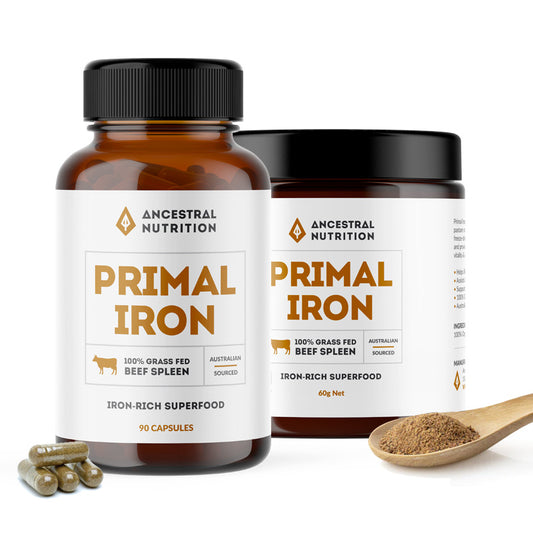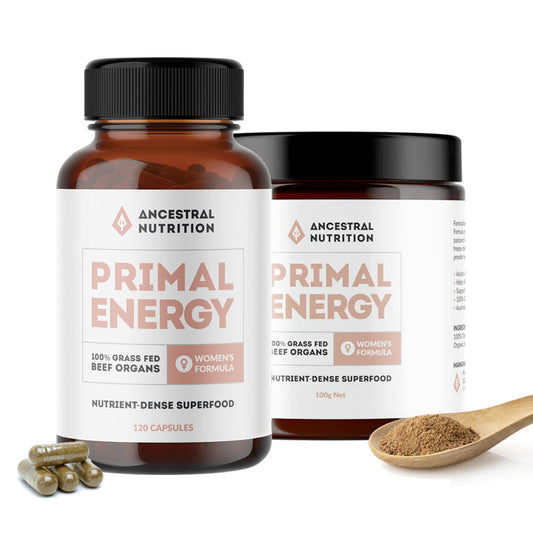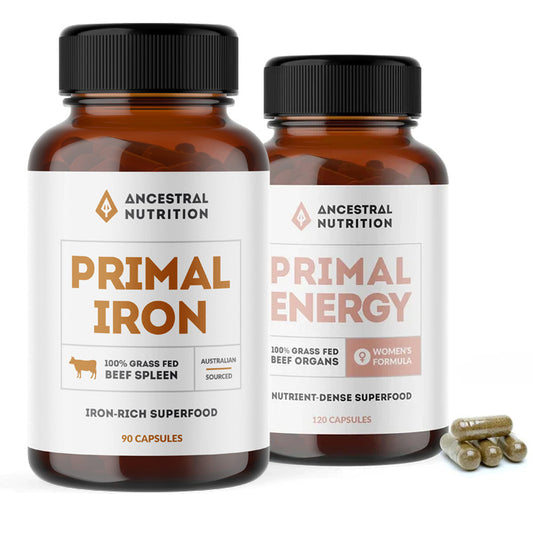Unveiling a Modern Health Concern: Understanding the Decline in Testosterone Levels
article by Ancestral Nutrition

In recent years, there has been growing attention on the natural decline of testosterone levels in men and women. Testosterone is a hormone involved in a wide range of biological processes including maintaining muscle mass, bone density, mood, and general vitality. While it’s a normal part of ageing for levels to decrease gradually over time, several lifestyle and environmental factors may contribute to a more pronounced or earlier decline.
Factors That May Influence Testosterone Levels
- 1. Physical InactivityRegular movement and physical activity are linked to overall wellbeing, including the healthy functioning of hormones. A sedentary lifestyle may contribute to weight gain and changes in body composition, which in turn can influence hormonal balance.
- 2. Diet and Nutrient IntakeA balanced diet rich in whole foods, healthy fats, and sufficient protein supports many aspects of wellbeing, including hormone production. Nutrients such as zinc, magnesium, vitamin D, and B vitamins are important for supporting overall health.
- 3. Chronic Stress and Sleep QualityLong-term stress and inadequate sleep can affect how the body regulates many functions, including those governed by hormones. Prioritising rest and recovery is essential for balanced health.
- 4. Environmental FactorsModern life includes increased exposure to various environmental compounds, such as plastics and personal care products, that may interfere with the body's hormonal systems. Reducing exposure where possible can be a proactive step toward general wellbeing.
Supporting Hormonal Health Through Nutrition
Nutrient-rich foods can play a role in supporting your body’s natural processes. Organ meats, including beef liver and other glands, are rich in bioavailable forms of nutrients such as:
- Zinc – Involved in many enzymatic reactions and supports immune and cellular function.
- Vitamin B12 – Supports energy metabolism and red blood cell production.
- Vitamin A – A fat-soluble vitamin essential for cellular health.
- Selenium and Iodine – Trace minerals that contribute to various metabolic pathways.
Whole Food Supplements as a Convenient Option
For individuals who prefer not to prepare or consume fresh organ meats, freeze-dried beef organ supplements offer a convenient alternative. These supplements provide a concentrated source of nutrients in a format that fits easily into modern lifestyles.
Our beef organ supplements are:
- Sourced from 100% grass-fed and grass-finished cattle raised on Tasmanian pastures
- Freeze-dried to preserve nutrient integrity
- Non-defatted to retain fat-soluble nutrients
- Free from GMOs, antibiotics, and added hormones
Including nutrient-dense foods and supplements as part of a balanced diet is a natural way to support your body’s nutritional needs. As always, consult your healthcare provider before making dietary changes or starting a new supplement routine.












